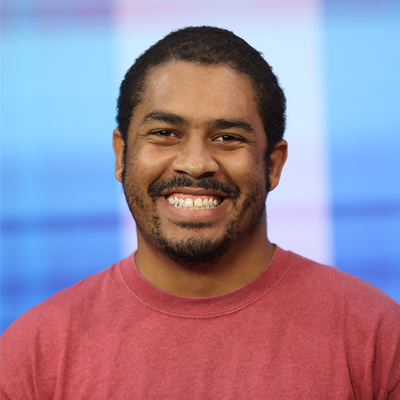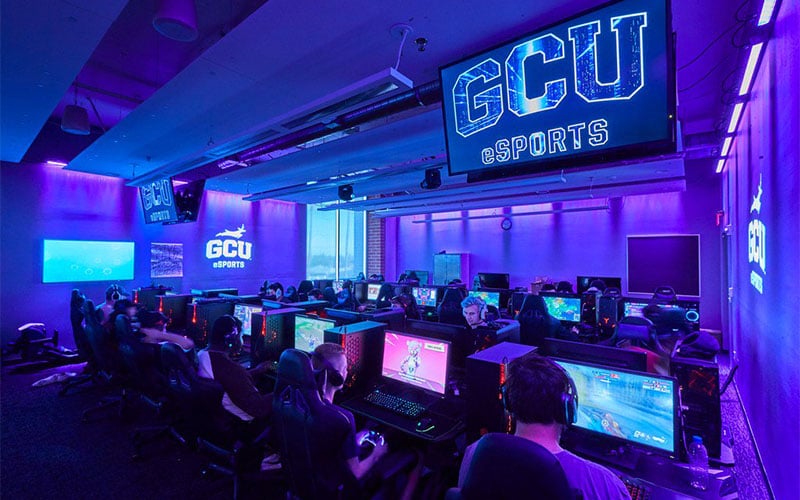PHOENIX – The ASU Overwatch team recently went through a live-streamed coaching session with David “Dpei” Pei, the renowned former coach of the Los Angeles Gladiators professional Overwatch team that he led to four straight winning seasons and a major championship in the 2021 Countdown Cup tournament.
The Gladiators decided to move on from Pei and, in the aftermath, he began focusing on his streaming endeavors, which included opening up a portion of his stream to review matches from college teams.
ASU Esports was the first collegiate team to take part in Pei’s series of stream reviews.
It is fitting that Pei would start with ASU Esports given his connections to Arizona. Pei grew up in Scottsdale and is a graduate of Desert Mountain High School.
This foray into college coaching sessions is Pei’s first experience with college esports and provided to him a glimpse into the wide range of skill among university programs. ASU Overwatch sits in the 3k range in their skill rating. Many of the top teams have an average skill rating of above 4k in the game.
Skill ratings are an indication of a team’s position on the game’s ranked ladder, which sorts players based on skill rating from 0 to 4,000+.
“(ASU) were 3k players and it was interesting,” Pei said. “I needed to explain things in different ways and go over simple concepts. Hopefully I did a good job for them.”
The skill level of ASU’s Overwatch team this year is lower than past seasons, which is why team captain Marco Roig considers it a transition year for the program. With the departure of many of the players from the 2020-21 team, ASU Overwatch was unable to field a D1 roster. This leaves the D2 team as the only one fielded.
This proved to be a small blessing, allowing Roig to reorganize D2 as one of the only returning members.
“When I joined ASU Overwatch, the D2 server was less of a team and more of a group of friends,” Roig said. “It was hard for newer people to get involved with the team. That was my first goal, to get a whole new, organized structure and setup for the D2 squad.”
The changes included joining more tournaments and being more active as a team, a stark contrast from Roig’s previous season on the roster. After only playing one tournament, ASU Overwatch had a relatively prolific spring semester competing in four tournaments, two of which were scheduled after the Pei coaching session.
Outside of the review by Pei, the Overwatch team doesn’t have a dedicated coach like ASU’s top-ranked “League of Legends” team. Roig said the team does get help from past members that give advice and review matches. However, the experience with Pei was the first time the team received coaching from someone at that level.
DPS player Noah Hinojosa said it was the first coaching session he’s ever experienced, adding that the coaching was valuable and helped him learn some lessons on the topic of teamwork, a big theme for Pei during the session.
“There’s a situation where we had an idea for how we should have gone in and Dpei was straight to the point and said, ‘That’s a bad idea,’” Hinojosa said. “But having a terrible idea is better than having no idea.”
Throughout the scrimmage with University of Wisconsin-Whitewater he reviewed, Pei pointed out some of the communication and teamwork issues that plagued ASU’s performance. According to Pei, many of the concepts he went over were similar to what he’d have emphasized early in the season with the Gladiators.
“I talk to my players with big concepts,” Pei said. “I did it similar to Gladiators; the beginning-of-the-year things I went over. It was very easy because (ASU) is so raw with comms. That was a problem.”
Both Hinojosa and Roig said the communication advice is something that stuck with them. Pei emphasized the difference between command and info comms as a way to streamline in-game communication so they’re clear, useful in different situations, and reduce unproductive verbal clutter.
“Our comms have only benefited from his coaching,” Hinojosa said. “We’re still working to get to the point where he was trying to get us.”
After the session, each member wrote down specific improvements they want to make in both gameplay and communication, identifying actionable goals they’re going forward with now.
Another key lesson that the team learned from Pei came toward the end of the stream when he answered some of the team’s life questions. For Pei, in-game strategy isn’t the be-all-end-all for outcomes he wants from his players.
“Coaching the game isn’t the most important,” Pei said. “Will they get better at life is important to me in the long term. People in this age group are typical to players I work with. I want to make sure I set an example and mentor them if they need.”
Pei said in-game strategy about being proactive and focusing on what you can control can be applied to life in general. Roig said it was good to hear Pei give some words of wisdom, particularly imploring the team to “go touch grass.”
As the team nears the end of the spring semester, Hinojosa said it was a success, despite the down year. He said the team has set goals to reorganize and play more tournaments.
“I’m proud of the team, and we got coached by Dpei,” he said. “I feel like that’s a bit of a success. We’ve set a good foundation for the upcoming Overwatch years.”


